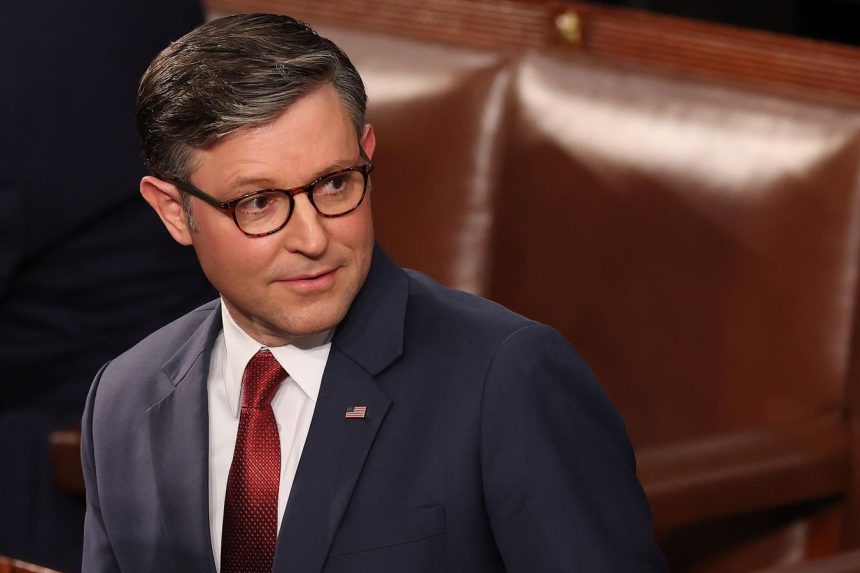The reelection of Representative Mike Johnson as Speaker of the House was a dramatic and unexpectedly close affair, highlighting the continuing fractures within the Republican Party and the enduring influence of former President Donald Trump. While Johnson ultimately secured a second term as Speaker, the initial resistance from a small but vocal faction of Republicans underscored the challenges he faces in leading a deeply divided House. The narrow margin of victory, 218-215, with one Republican voting against him and eight initially withholding or opposing their support, served as a stark reminder of the precarious nature of his leadership.
The initial roll call vote painted a bleak picture for Johnson’s prospects. With all Democrats united behind their nominee, Representative Hakeem Jeffries, Johnson could only afford to lose a single Republican vote. As the initial tally revealed more than one Republican defection, the likelihood of his reelection seemed to diminish significantly. The proceedings were temporarily halted as Johnson retreated to a private area of the chamber, presumably to engage in negotiations with the dissenting Republicans. This period of intense backroom discussions ultimately proved crucial in securing the necessary votes for his reelection.
The dramatic turn of events highlighted the power dynamics at play within the Republican Party. While Johnson had garnered endorsements from influential figures like Donald Trump and Elon Musk, the initial resistance from within his own party demonstrated the limits of such endorsements. The fact that several Republicans were willing to defy these endorsements speaks volumes about the deep-seated divisions within the party and the ongoing struggle between its establishment and more hardline factions. The eventual shift in votes, with the holdouts (excluding Representative Massie) changing their stance to support Johnson, suggests that concessions were made and compromises reached behind closed doors.
The involvement of former President Trump in the negotiations surrounding Johnson’s reelection added another layer of complexity to the already tense situation. Multiple reports indicated that Trump personally contacted some of the dissenting Republicans, including Representatives Norman and Self, before they switched their votes in favor of Johnson. While the specifics of these conversations remain unclear, Trump’s intervention appears to have played a significant role in swaying the outcome of the vote. This underscores Trump’s continued influence within the Republican Party, even after leaving office, and his ability to exert pressure on individual members to align with his preferred candidates.
The narrow victory for Johnson raises questions about his ability to effectively govern a deeply divided House. The fact that he faced such significant opposition from within his own party, despite endorsements from high-profile figures, suggests a lack of unity and potentially foreshadows future challenges in passing legislation. The need for intense negotiations and potential concessions to secure his speakership may also weaken his position and limit his ability to pursue his legislative agenda. The close vote serves as a warning sign that Johnson will need to navigate carefully the various factions within his party to maintain his leadership and advance his policy goals.
The events surrounding Johnson’s reelection underscore the broader challenges facing the Republican Party as it grapples with internal divisions and the legacy of the Trump era. The narrow margin of victory and the need for eleventh-hour negotiations highlight the fragility of party unity and the difficulty of achieving consensus on key issues. Going forward, Johnson will need to demonstrate his ability to bridge the divides within his party and build a broader coalition to effectively govern the House and address the pressing challenges facing the nation. His success or failure in this endeavor will likely have significant implications for the future direction of the Republican Party and the political landscape as a whole. The close call in this election serves as a potent reminder of the deep fissures within the Republican ranks and the ongoing struggle to define the party’s identity and direction. Johnson’s ability to navigate these turbulent waters will be a critical test of his leadership and a key determinant of the House’s effectiveness in the coming years.



